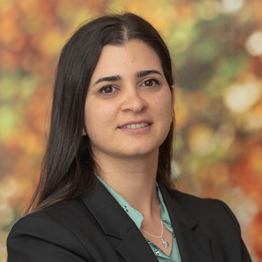Doctoral Thesis
Couples therapy focused on emotions
Qualitative exploration of 'innovative moments' and comparison of face-to-face and online application
The internship of online psychotherapy (or 'teletherapy') has grown significantly due to the COVID-19 pandemic, differentiated by its cheaper cost and improved access to health services, especially in Spanish-speaking communities with limited resources.
Although individual 'teletherapy' has been shown to be as effective as face-to-face therapy, there is little research about its efficacy in couples or families, and almost none in Spanish-speaking couples. Emotionally Focused Couples Therapy (EFT), designed by Susan Johnson, is one of the most effective in the Anglo-Saxon context and has been found to be suitable for Spanish-speaking patients as well.
The Institute for Culture and Society of the University of Navarra and Brigham Young University (USA) are conducting the first research on EFT in Spanish-speaking couples, evaluating its efficacy both in modality face-to-face and online. This thesis will use data from two projects of research: the clinical essay "E-EF(f)ECTS credit", clinicaltrials.gov: # NCT04277325; and the quasi-experimental study "E-EF(f)ECTS credit: exploring emotion-focused couples therapy online".
The generalgoal of the thesis is to analyze, from an EBT perspective, whether 'teletherapy' is as effective as face-to-face therapy in improving dyadic adjustment in Spanish-speaking couples, also exploring its impact on reflective function. The latter variable is present in secure attachment relationships and has, to date, only been studied in individual therapy.
The thesis also aims to contribute to the improvement of the therapists' training in these two variables. To achieve this last aim, we will explore qualitatively, for the first time in this model, the 'innovative moments', moments in the therapeutic dialogue that represent exceptions to the problematic narrative of the patients. This will allow us to deepen the relationship of this process variable with the therapeutic success variables (dyadic adjustment and reflective function).
On the framework of the latter goal, evidence demonstrates the need to base the training of therapists on research of processes, given that these professionals benefit most from training in markers of change that predict clinical outcomes in real time.
FROM EMOTION-FOCUSED COUPLE THERAPY, THIS RESEARCH ANALYZES WHETHER 'TELETHERAPY' IS AS EFFECTIVE AS FACE-TO-FACE THERAPY IN THE SPANISH-SPEAKING CONTEXT.
Doctoral candidate:

Mª de los Ángeles Cueli Naranjo
mcuelinaran@unav.es
Directors of thesis
 Martiño Rodríguez González
Martiño Rodríguez González
mrgonzalez@unav.es
 María del Carmen Calatrava Martínez
María del Carmen Calatrava Martínez
mcalatrava@unav.es
